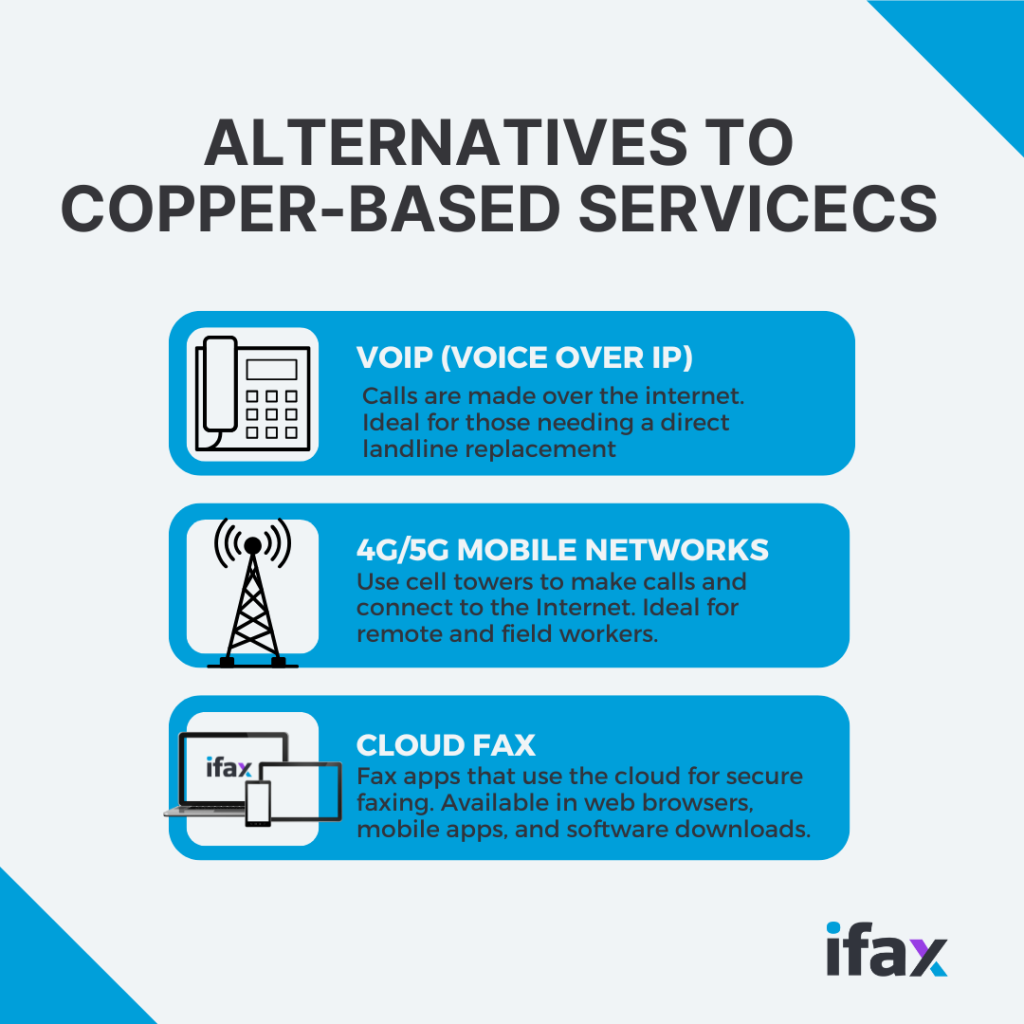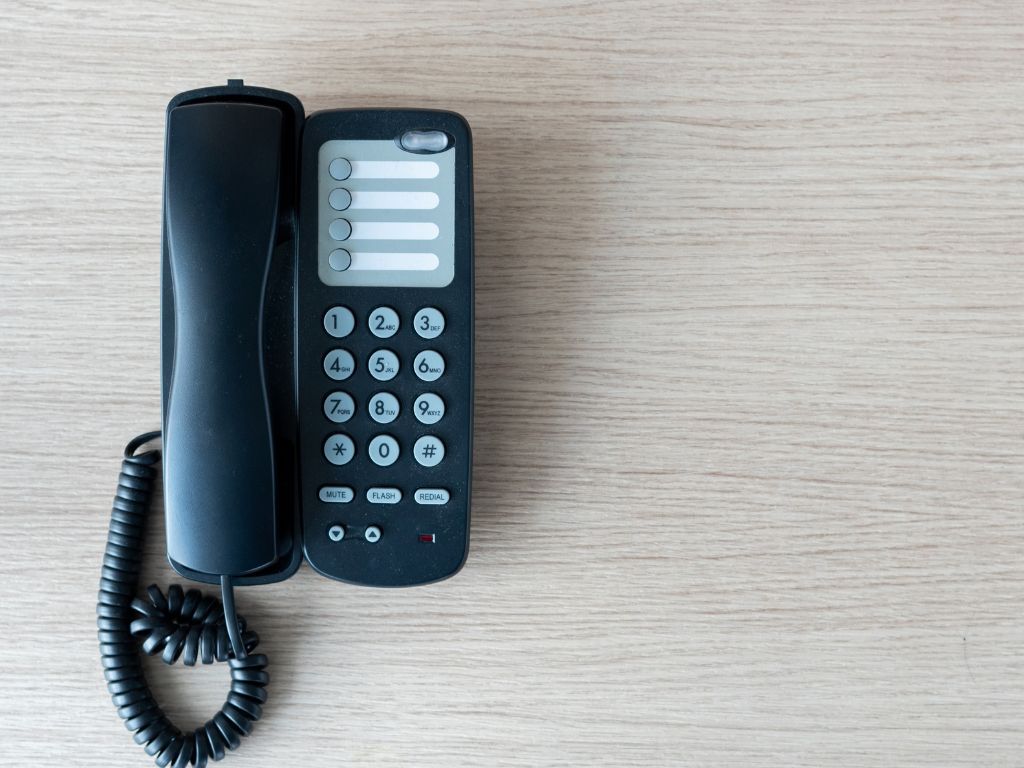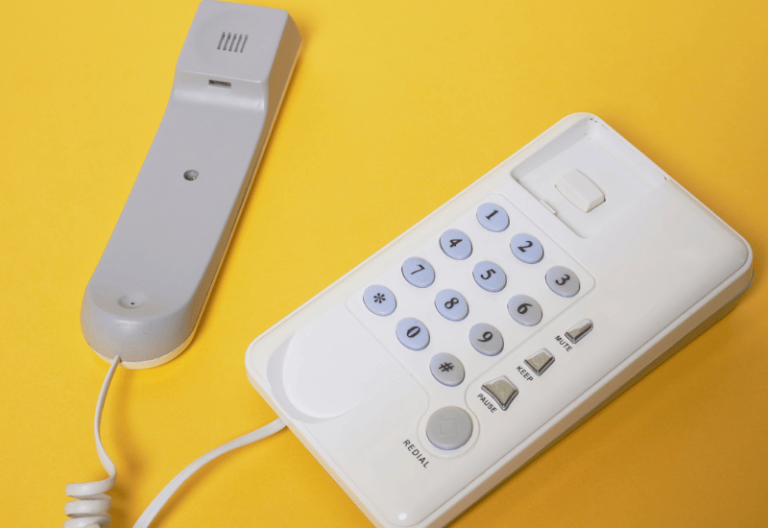The UK is accelerating towards a digital future powered by fiber optic connections. To this end, the Openreach copper phone line shutdown will be completed in January 2027. This will switch existing traditional landlines to digital counterparts like VoIP.
Read on to discover how you can prepare for its impact.
Table of Contents

Openreach Copper Switch Off: What You Need to Know
Openreach’s parent company, BT Group, has set January 31, 2027, as the deadline to retire the Public Switched Telephone Network (PSTN) completely. Since Openreach operates the physical network, they are responsible for withdrawing all products that rely on PSTN, including Wholesale Line Rental (WLR), which is used by many Communications Providers (CPs).
Openreach is working closely with broadband and phone providers (CPs) to ensure they prepare for the transition. Special attention is being given to vulnerable customers (such as elderly individuals or those relying on copper lines for medical devices, alarms, etc.) to ensure they have support and alternative solutions.
Currently, Openreach has stopped selling new analog (copper-based) services. This means if a customer signs up, switches providers, upgrades, or changes their service, they will automatically be moved to a digital line instead of an analog one.
The new service will be provided via Openreach’s Full Fibre (FTTP) network, which already covers 11 million homes and businesses. If Full Fibre isn’t available, customers will be moved to another digital broadband-based service.
Related Reading: AT&T Copper Network Retirement
Why Is Openreach Switching Off Copper Phone Lines?
Copper wires have been the backbone of UK telecommunications for decades. Unfortunately, the aging copper network is outdated and struggles to support modern digital communication needs. It was designed for voice calls, not video calls, cloud computing, or streaming.
FTTP (fiber to the premises) promises a faster, more stable, and energy-efficient alternative. With the UK landline switch off happening, FTTP is currently being rolled out to cover more areas, and running two parallel networks (fiber and copper) is costly and inefficient.
The copper network also requires more repairs due to weather damage and wear and tear, leading to high maintenance costs. By switching to fiber, Openreach and other service providers will reduce long-term operational expenses.
The government and telecom industry also advocate for a fully digital UK where VoIP (voice over Internet protocol) services replace traditional landlines.
Explore Further: POTS Line Going Away – What’s The Primary Reason?

Impact of the Copper Switch Off on Consumers and Businesses
Openreach’s switch off of copper lines significantly impacts anyone still relying on analog landline phones. Once the switch-off is complete, these traditional landlines will stop working, and all calls will be made over the Internet using VoIP.
Consumers will be required to use a broadband connection to make calls. Those using ADSL (asymmetric digital subscriber line) or FTTC (fiber-to-the-cabinet) broadband will have to switch to full-fiber or an alternative digital solution. For areas without full fiber yet, Openreach can offer other digital services, such as SoGEA (single-order generic internet access).
Impact on Businesses
Businesses using traditional phone lines, ISDN, or PBX systems must switch to VoIP-based services. IT teams must ensure that business-critical phone systems remain operational after the switch-off.
Examples of these systems include payment terminals (card machines), security and alarm systems, lifts and emergency lines, and fax machines. These systems should be compatible with digital networks and have power backups for potential outages.
The Openreach landline copper switch off allows businesses to modernize their networks and benefit from faster and more reliable broadband. Digital phone lines, being portable and flexible, also enhance remote working capabilities.
Impact on Individual Consumers
Elderly or vulnerable individuals with medical alert devices must check if their devices are compatible with digital networks. Older home alarm systems must be upgraded to ensure they continue working after the transition.
Those without reliable broadband access may need to explore mobile-based alternatives or government-supported digital solutions to stay connected. Additionally, individuals who are less familiar with digital technology may require support in setting up and using VoIP-based phone services.
Consumers must check with their providers early to avoid disruptions and ensure a smooth transition to a digital phone system.
How Businesses Can Adapt to the Change
With the impending phase-out of Openreach copper lines, businesses must transition to modern fiber and digital solutions sooner rather than later. Here’s how:
- Audit existing infrastructure and identify services relying on copper lines. If in doubt, contact your service provider to check your current setup.
- Check if FTTP is available in your area and upgrade to full fiber broadband. If you need guaranteed speeds and uptime, check out leased lines.
- Replace traditional landlines with VoIP solutions. Choose a VoIP service that offers added flexibility for remote work. Ensure your internal network and WiFi can handle voice traffic without issues.
- Ensure compatibility of critical systems by checking if they work over digital connections. Work with vendors to upgrade outdated equipment.
- Inform staff about the migration timeline and train them on the new digital systems. Monitor network performance after the migration to ensure everything went smoothly.

Best Alternatives to Copper-Based Phone Services
Although the deadline is near, multiple tried-and-tested alternatives help you navigate the Openreach switch off. A digital counterpart can now replace every existing copper-based application.
1. VoIP
VoIP offers the best experience for businesses and individuals needing a direct landline replacement. Calls are made over the Internet instead of through traditional phone lines, offering higher call quality and lower monthly payments.
You can also use VoIP services remotely and with any device, such as VoIP desk phones, mobile apps, or computers.
2. 4G/5G Phones and broadband
If your business mostly has remote workers or field employees, you might benefit more from mobile-based phone services. They use mobile networks like 4G and 5G for calls and internet access.
This eliminates the need for a traditional phone line and works in areas without full-fiber availability. It’s also a portable and flexible solution that is highly reliable since there are more cell towers available.
3. Cloud fax
Businesses requiring constant faxing can use online faxing services instead of traditional fax machines. These applications work on the cloud and are equipped with the latest encryption technology to secure messages.
Digital fax also offers advanced features like fax broadcasting, fax OCR, and fax scheduling that aren’t possible with analog fax machines.
Enjoy Hassle-Free and Secure Digital Faxing With iFax
Upgrade your systems to prepare your business for the impending Openreach copper switch off. For your faxing needs, check out iFax. It guarantees 99.9% uptime to receive faxes immediately while being protected with the latest encryption methods.
iFax is accessible via a web browser, mobile apps, or dedicated software for your Windows or MacBook. It also works with popular business software, so you can seamlessly integrate it with your workflows.







